


Furnace oil is a product of direct distillation of diesel oil fractions. Due to its excellent thermal capacity and low cost it is widely used for heating of private houses, stationary heating systems, industrial buildings and power plants. Furnace oil is residual fuel oil of different viscosity and produced from oil distillation residues. The approximate viscosity of the product is 50OC. they are often used in industries for refueling of large generators. Heavy fuel is denser and may freeze in containers without additional heating, especially is the cold season. The boiler heated with furnace oil has high efficiency and require minimal operator's participation, therefore it is in demand for heating of sub-urban real estate using autonomous systems. It does not have to comply with strict standards for the cetane and iodine numbers, cloud points, and the Sulphur content often exceeds 1%. It means that such fuel cheaper and easier than diesel oil and as a result, it is cheaper. To improve its technical parameters, heating (furnace) oil is lightened. Lightening means eliminating the impurities (using Sulphurous) using special substances.

Diesel oil is used for the operation of piston diesel internal combustion engine. In gasoline engines, ignition occurs from a spark, whereas in diesel engines fuel ignites when compressed under high pressure. The exhaust gas temperature of diesel engine is lower than that of a gasoline engine. Due to which the loss of heat and power is reduced, which makes the diesel more economical. Previously, the production and sale of diesel oil was associated mainly with large and heavy equipment, but today more and more cars are provided with diesel engines. Environmental friendliness and operating qualities of diesel oil is constantly increasing alongside expanding the possibilities of application. In addition to automotive equipment, diesel oil is used for generators of power plants, heating boilers, water and railway transport. The main indicator of diesel oil quality is cetane number (CN). It is responsible for the time interval between ingress of oil into the cylinder and ignition. The higher the CN, the shorter this time and the higher the cost of diesel oil. Hight CN of diesel oil determines: Complete combustion of diesel oil without engine overheating Increase the traction parameters Increase the service life of engine parts Increase the power and economy of diesel engine Each diesel engine is engineered for a specific CN, at which it will operate optimally. Therefore, a high figure is not always the best. Preferred values of the CN lie in the range from 50 - 60
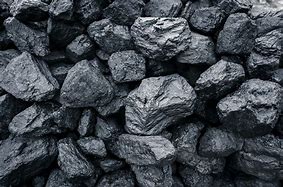
Coal is combustible black or brownish-black sedimentary rock, formed as rock strata called coal seams. Coal is mostly carbon with variable amounts of other elements; chiefly hydrogen, Sulphur, oxygen, and nitrogen. Coal is formed when dead plant matter decays into peat and is converted into coal by the heat and pressure of deep burial over millions of years. As a fossil fuel burnt for heat, coal supplies about a quarter of the world's primary energy and 2/5th of its electricity. Some iron and steel making and other industrial processes burn coal. Different varieties of coal arise because of differences in the kinds of plants material (coal type), degree of coalification (coal rank), and range of impurities (coal grade). Coal is an abundant natural resource that can be used as a source of energy, as a chemical source from which numerous synthetic compounds can be derived and in the production of coke for metallurgical processes. Coal is a major source of energy in the production of electrical power using steam generation.
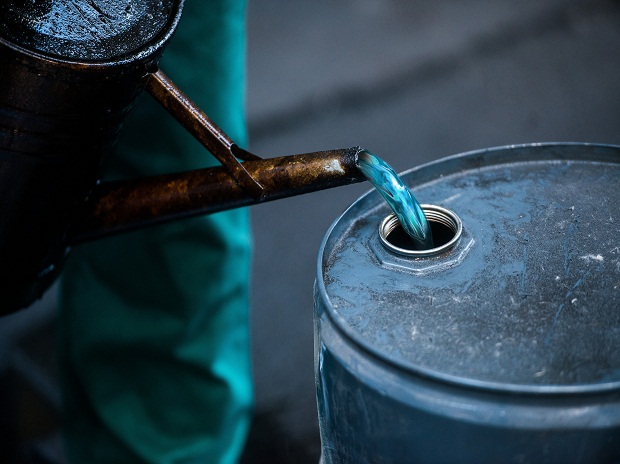
This colorless slightly oily liquid was especially popular in the 19th and 20th century when used in kerosene lamps for lighting and in stoves for cooking. Kerosene widely used in various fields due to its properties: Increases wear resistance of mechanism Dissolves organic compounds Has a stable composition Quickly evaporates Has a high combustion temperature (upto 300oC) Resistant to thermal oxidation The composition of kerosene includes compounds of Sulphur, oxygen, and nitrogen as well as various types of hydrocarbons. The cost of kerosene is lower than the cost of gasoline.
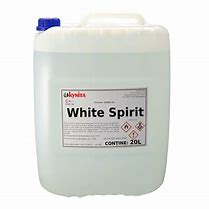
White spirit is a specially refined product in the naphtha boiling range. It has a variety of uses including as an extraction solvent, a cleaner (paint thinner), or a degreaser. It is a common solvent in paints, lacquers, varnishes, aerosols, and asphalts. It's also known as solvent naphtha, mineral spirit, varsol, mineral turpentine, petroleum spirits, solvent naphtha (petroleum), or, generically paint thinner. A mixture of aliphatic and alicyclic C7 to C12 hydrocarbons, white spirit is used as an extraction solvent, as a cleaning solvent, as a degreasing solvent. In western Europe about 60% of the total white spirit consumption is used in paints, lacquers and varnishes. White spirit is the most widely used solvent in the paint industry. In households, white spirit is commonly used to clean paint brushes after use.

Gasoline is the most common type of fuel that is used for most vehicles. It is colorless or slightly yellowish flammable liquid consisting mainly of hydrocarbons. It is produced by distilling oil or splitting petroleum products. Gasoline is used for spark ignition internal combustion engines in road and air transport. The quality of the fuel determines the operability and durability of the engine. Motors are developed by the manufacturers for a specific type of hydrocarbon mixture. Gasoline, as fuel, must meet the requirements of the motor and have certain characteristics: Octane Fractional composition Saturated vapor pressure, etc.

Bitumen is widely used in the construction of asphalt roads and bituminous membrane products. Bitumen is commonly used to build highways, motorways and rail networks. Bitumen has excellent water-proofing properties and is widely used for making roofing products along with a range of other household and industrial applications, from emulsion paints to sound-proofing. Bitumen has been proven to be effective on both high-speed railway tracks and heavy-load railway tracks. It is also used for surfacing airfield runways and air strips and taxi ways. For the marine construction industry bitumen is used of hydraulic applications such as canal lining, underwater tunnels, river bank protection, dam construction and sea defence. There are also numerous industrial applications like roofing felt material, printing inks, packaging paper, linoleum, electrical cable/junction box insulation, mastic for roofing of terraces, and duplex paper manufacture. The penetration test determines the hardness of bitumen by measuring the depth(in tenths of mm) to which a standard, and loaded needle will vertically penetrate in 5 seconds, a sample of bitumen maintained at a temperature of 250c. hence the softer the bitumen, the greater will be its number of penetration units. We offer the following grades of penetration bitumen including Bitumen 80/100, Bitumen 85/100, Bitumen 35/50, Bitumen 40/50, Bitumen 50/70, Bitumen 60/70 and Bitumen 160/220.
.jpg)
LPG - Liquified petroleum gas or liquid petroleum gas is mixture of flammable hydrocarbon gases that include propane, butane, isobutane and mixture of the three LPG gases. LPG is commonly used for home heating gases, cooking, hot water, refrigerants, aerosol propellants, petrochemical feedstock, and Autogas fuel for LPG - cars and vehicles. LPG gas comes from oil and gas wells, as is a fossil fuel. LPG gas manufacturing process includes natural gas processing and the crude oil refinery process. LPG liquified through pressurization, comes from natural gas processing and oil refining. It can be compressed into liquid at relatively low pressures. LPG is generally stored, as a liquid in steel vessels ranging form small BBQ gas bottles to larger gas cylinders and LPG storage tanks.
.jpg)
Heavy fuel oils are referred to as low sulfur fuel oil (LSFO) if their sulfur content is below 1%. Usually these are marine fuel types IFO 180 or IFO 380, which have been desulfurized. Until the end of 2014, ships could still travel through Emission Control Areas (ECAs) with this type of marine fuel.
.jpg)
Light diesel oil, or LDO, is a blend of components from the distillation process of diesel. It is used in engines with an RPM less than 750, such as boilers and furnaces. LDO is also referred to as distillate fuel or marked oil since it is marked with a coloring substance. A number of properties must meet standard requirements for a fuel to be classified as light diesel oil.
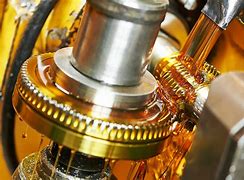
A lubricant is a substance, usually organic, introduced to reduce friction between surfaces in mutual contact, which ultimately reduces the heat generated when the surfaces move. It may also have the function of transmitting forces, transporting foreign particles, or heating or cooling the surfaces. In addition to industrial applications, lubricants are used for many other purposes. Other uses include cooking, bio-applications on humans, ultrasound examination, medical examination. It is mainly used to reduce friction and to contribute to a better and efficient functioning of a mechanism.
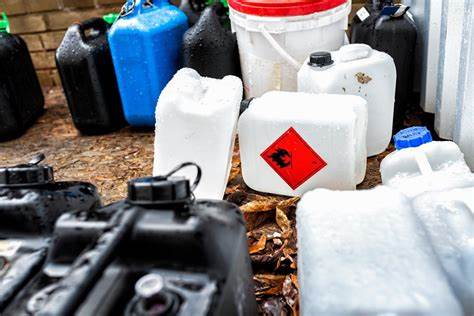
The other related petroleum products are asphalt, bio-diesel, paraffin wax, tar, naphtha, petrochemicals plastics.

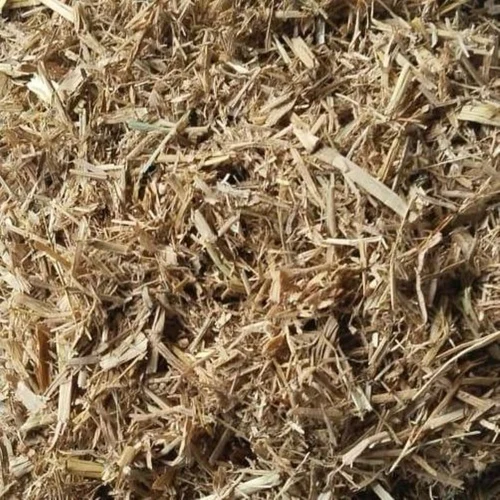
Mustard husk is an eco-friendly agricultural residue obtained after processing mustard seeds. It is an abundant and renewable source of biomass energy widely used for industrial and domestic heating applications. Due to its high calorific value and low ash content, mustard husk serves as an efficient fuel for boilers, gasifiers, and pellet production. When utilized as biomass, it helps reduce dependence on coal and other fossil fuels, significantly lowering carbon emissions. Its efficient combustion and easy availability make it a sustainable choice for rural and industrial energy generation. Furthermore, the ash generated from mustard husk combustion can be used as an organic soil enhancer, promoting sustainable agriculture. Harnessing mustard husk biomass not only converts agricultural waste into clean energy but also supports environmental conservation and rural economic growth.
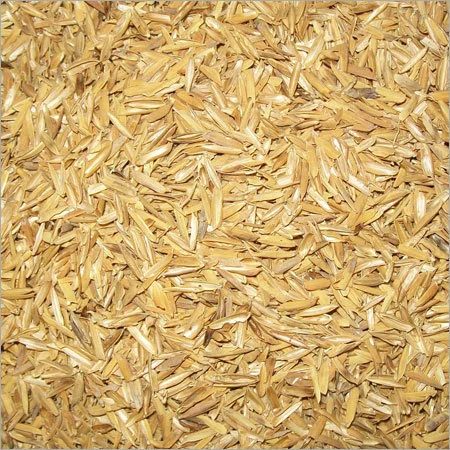
Rice husk, also known as rice hull, is a natural byproduct obtained during the milling of rice. It is one of the most abundant and sustainable sources of biomass energy, offering a cost-effective and eco-friendly alternative to fossil fuels. With a high calorific value and moderate ash content, rice husk is widely used in biomass power plants, boilers, and gasifiers to generate heat and electricity. Its consistent availability throughout the year makes it a reliable energy resource, especially in agricultural regions. When processed into pellets or briquettes, rice husk provides efficient combustion and easy handling. Additionally, rice husk ash contains valuable silica that can be used in cement, steel, and construction industries. Utilizing rice husk as biomass not only helps reduce waste disposal challenges but also contributes to carbon neutrality and rural development through renewable energy generation.

Rice Parali, also known as paddy straw or rice bundle, is the leftover residue of rice crops after harvesting. Traditionally burned in fields, this agricultural byproduct can be transformed into a valuable source of renewable energy. As a biomass fuel, Rice Parali offers an eco-friendly and sustainable alternative to coal, reducing greenhouse gas emissions and minimizing air pollution. It has a good calorific value and is readily available in large quantities across agricultural regions. When processed into bales, briquettes, or pellets, Rice Parali becomes easier to store, transport, and use in boilers, power plants, and industrial furnaces. Utilizing rice straw for biomass energy not only promotes cleaner energy production but also supports farmers by creating an additional source of income. Its responsible use contributes to waste management, rural sustainability, and a greener energy future for industries and communities alike.
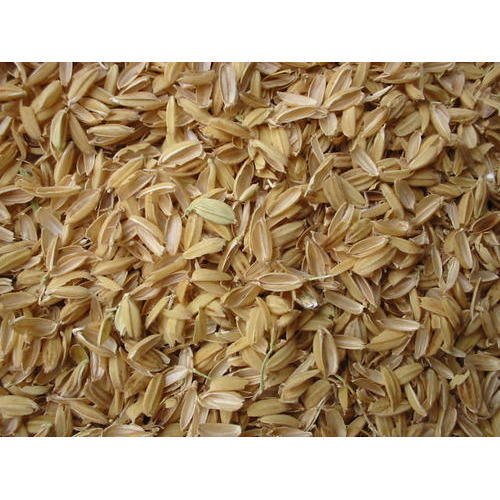
Wheat Husk, also known as wheat bran or chaff, is a natural byproduct obtained during the processing of wheat grains. It is a highly sustainable and renewable source of biomass fuel that plays a vital role in the transition toward clean energy. With a strong calorific value and low moisture content, Wheat Husk is well-suited for use in industrial boilers, biomass power plants, and biofuel production. When converted into pellets or briquettes, it provides a cost-effective and efficient alternative to conventional fossil fuels such as coal. Its combustion releases significantly lower carbon emissions, making it an environmentally responsible energy solution. Utilizing Wheat Husk for biomass energy not only supports circular economy practices but also helps reduce agricultural waste, benefiting both farmers and industries. As a renewable energy resource, Wheat Husk contributes to energy security, rural economic growth, and a cleaner, greener future for sustainable industrial development.

Sesame Husk, the outer covering of sesame seeds obtained after oil extraction, is an excellent source of biomass fuel known for its high calorific value and clean-burning properties. This agricultural byproduct is abundant, renewable, and environmentally friendly, making it ideal for sustainable energy generation. When processed into briquettes or pellets, Sesame Husk becomes a highly efficient and cost-effective alternative to fossil fuels such as coal and diesel. It produces minimal ash and emits significantly lower levels of carbon dioxide, contributing to reduced greenhouse gas emissions. Due to its balanced composition of carbon and low sulfur content, it ensures steady combustion and high energy output in industrial boilers and biomass power plants. Utilizing Sesame Husk as biomass not only supports eco-friendly energy solutions but also promotes agricultural waste management and rural development by adding value to byproducts that would otherwise go unused. It stands as a reliable step toward a cleaner and more sustainable energy future.

Corn Cob, derived from the central core of harvested maize, is a highly efficient and renewable biomass resource widely used for clean energy production. Available in both red and white varieties, corn cobs offer excellent calorific value, making them an ideal substitute for conventional fuels such as coal, wood, and furnace oil. Their uniform size and composition enable consistent combustion, ensuring stable heat generation with minimal smoke and ash residue. When processed into pellets or briquettes, Corn Cob biomass provides a sustainable, eco-friendly, and economical energy option for industries like food processing, brick manufacturing, and power generation. Its low moisture and sulfur content contribute to reduced carbon emissions and improved fuel efficiency. Utilizing Corn Cob as a biomass fuel not only promotes renewable energy use but also helps farmers generate additional income by converting agricultural waste into valuable energy resources. It represents a significant step toward sustainable energy and circular economy practices.
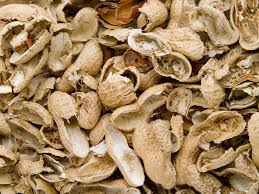
Peanut Husk, also known as Groundnut Shell, is an excellent agricultural byproduct widely used as a renewable biomass fuel. It is generated during peanut processing and offers a clean, sustainable alternative to conventional fossil fuels. With high calorific value, low ash content, and minimal moisture, Peanut Husk biomass provides efficient and consistent combustion, making it ideal for use in boilers, furnaces, and biomass power plants. Its abundant availability and cost-effectiveness make it a preferred energy source for industries seeking to reduce carbon emissions and energy costs. When converted into pellets or briquettes, Peanut Husk delivers stable energy output and easy handling while supporting waste reduction and rural economic development. By utilizing Peanut Husk as biomass fuel, industries can contribute to a greener energy ecosystem, promote circular economy practices, and reduce dependency on non-renewable energy sources. It stands as a reliable, eco-friendly solution for sustainable industrial heating and energy generation.